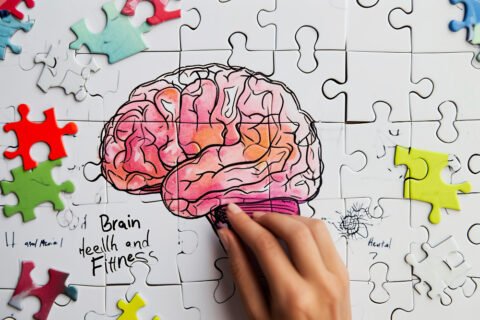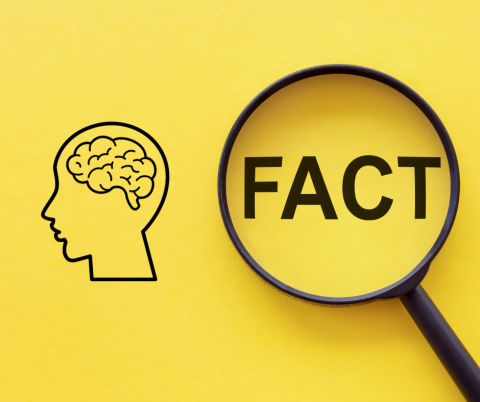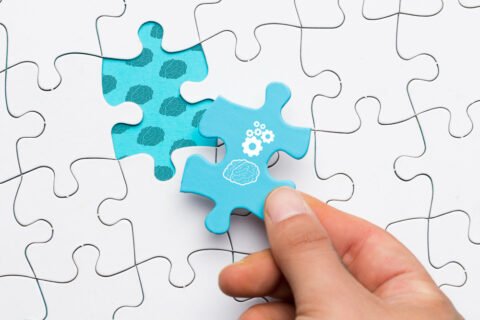Dementia can be a frightening topic, but understanding the different types and their symptoms can empower you to provide better support for yourself or a loved one. This guide dives deep into the various forms of dementia, their progression, and helpful strategies for navigating this journey.
What are the 7 Types of Dementia?
Dementia isn’t one disease, but a term for a group of conditions causing a decline in thinking skills. Here are seven common types:
- Alzheimer’s disease: The most common type, affecting memory, thinking, and behavior.
- Vascular dementia: Caused by blood flow problems in the brain, leading to problems with thinking, planning, and judgment.
- Lewy body dementia: Characterized by Lewy bodies (protein deposits) in the brain, causing memory problems, hallucinations, and movement difficulties.
- Frontotemporal dementia: Affects the frontal and temporal lobes, leading to personality changes, apathy, and language difficulties.
- Mixed dementia: A combination of two or more types of dementia, often Alzheimer’s and vascular dementia.
- Posterior cortical atrophy: Impacts the back of the brain, causing problems with vision and spatial awareness.
- Primary progressive aphasia: A language disorder causing difficulty speaking, understanding language, or both.

Understanding Stages of Dementia: A Look at Vascular Dementia
Its important to understand the stages of different types of Dementia. Vascular dementia progresses differently for everyone, but a seven-stage model provides a general framework:
- Stage 1: Mild forgetfulness and difficulty concentrating.
- Stage 2: More noticeable memory problems and difficulty with daily tasks.
- Stage 3: Increased confusion, personality changes, and need for assistance with daily activities.
- Stage 4: Difficulty walking, speaking, and swallowing.
- Stage 5: Significant dependence on others for care.
- Stage 6: Severe decline in cognitive and physical abilities.
- Stage 7: Complete dependence on others for all care needs.
It’s important to remember that this is a general model, and the progression of symptoms can vary.
What is Stage 5 of Dementia?
Stage 5 dementia is marked by a significant decline in cognitive and physical abilities. Individuals may:
- Require assistance with all daily activities like dressing, bathing, and eating.
- Experience increased communication difficulties.
- Struggle with balance and walking.
- Have incontinence.
Challenges at this stage include managing behavioral changes, providing emotional support, and ensuring physical comfort.
The 7 A’s of Dementia: Recognizing the Impact
The 7 A’s of dementia describe common symptoms that can manifest in different combinations and helps in recognizing different types of Dementia:
- Anosognosia: Lack of awareness of one’s dementia.
- Agnosia: Difficulty recognizing objects, people, or places.
- Aphasia: Language problems affecting speaking, understanding, or writing.
- Apraxia: Difficulty performing familiar tasks like dressing or using utensils.
- Altered perceptions: Hallucinations or delusions.
- Amnesia: Memory loss, often short-term memory initially.
- Apathy: Loss of interest or motivation.
10 Warning Signs of Dementia: Early Detection Matters
Being aware of the early signs of dementia can lead to earlier diagnosis and intervention:
- Memory problems: Forgetting recent conversations, appointments, or misplaced items becoming more frequent.
- Difficulty with familiar tasks: Challenges with managing finances, planning meals, or following directions.
- Language problems: Struggling to find words, using incorrect words, or difficulty following conversations.
- Disorientation: Confusion about time, place, or people.
- Poor judgment: Making risky decisions financially or regarding safety.
- Personality changes: Increased withdrawal, apathy, or irritability.
- Problems with vision: Difficulty judging distances or spatial relationships.
- Loss of motivation: Lack of interest in hobbies or activities once enjoyed.
- Social withdrawal: Avoiding social interactions or familiar activities.
- Depression: Feeling down, hopeless, or withdrawn.
The Three Golden Rules of Dementia Care
For caregivers, these three principles are essential:
- Validation: Acknowledge and validate the person’s feelings and experiences.
- Simplification: Break down tasks into smaller steps and provide clear instructions.
- Patience: Dementia progresses slowly, so one must have patience through all the stages.
How Long Does Stage 7 Dementia Last?
Stage 7 dementia, the final stage, is characterised by complete dependence on others for all care needs. Individuals may experience:
- Severe cognitive decline, with minimal recognition of surroundings or loved ones.
- Loss of ability to speak or communicate meaningfully.
- Increased physical dependence, requiring assistance with all movements.
The duration of Stage 7 dementia varies considerably. It can last anywhere from a few months to several years, depending on the individual’s overall health and the type of dementia.
For caregivers, this stage can be emotionally and physically demanding. Seeking professional support and respite care services can be crucial.
The 5 R’s of Dementia Care: Strategies for Support
The 5 R’s offer a framework for managing dementia symptoms and creating a supportive environment:
- Reassure: Provide comfort and reduce anxiety through calming words and gentle touch.
- Redirect: Gently divert attention away from frustrating situations or confusion.
- Reminisce: Engage in positive reminiscing about past experiences to spark joy and connection.
- Relax: Create a calm and relaxing atmosphere to reduce stress and agitation.
- Routine: Maintain a consistent daily routine to provide a sense of security and predictability.
Understanding the 4 A’s of Dementia
Another helpful framework, the 4 A’s, focuses on core cognitive symptoms:
- Amnesia: Memory loss, often short-term memory initially, but can progress to long-term memories.
- Aphasia: Difficulty with communication, affecting speaking, understanding, reading, or writing.
- Apraxia: Inability to perform familiar tasks due to problems planning and coordinating movements.
- Agnosia: Difficulty recognizing objects, people, or places.
These symptoms can manifest differently depending on the type and stage of dementia.
Which Stage of Dementia Lasts the Longest?
The middle stages of dementia, typically Stages 3 to 5, often last the longest. During this time, individuals experience a gradual decline in cognitive and physical abilities, but may still retain some level of independence with assistance.
Can Dementia Be Cured?
Dementia currently has no cure, meaning there’s no treatment that can reverse the damage already done to the brain. This can be a disheartening reality for those diagnosed and their loved ones. However, there’s still hope on the horizon.
Here’s a breakdown of the current landscape:
- No Cure, Yet: Extensive research is ongoing to unravel the complexities of dementia and identify potential cures. Scientists are exploring various avenues, including understanding the underlying protein buildups associated with different dementia types and investigating methods to remove or prevent them.
- Focus on Slowing Progression: While a cure remains elusive, there are significant advancements in managing dementia. Medications can help slow the decline in cognitive function, particularly in Alzheimer’s disease. These medications work by targeting specific neurotransmitters in the brain or by protecting brain cells from further damage.
- Managing Symptoms: A range of therapies and strategies can significantly improve the quality of life for individuals with dementia. These include cognitive stimulation therapies to maintain cognitive function for as long as possible, medication to manage behavioral changes like agitation or anxiety, and non-drug approaches like music therapy and physical activity to promote overall well-being.
- Early Diagnosis is Key: Early diagnosis allows for early intervention, which can significantly improve the quality of life for someone with dementia. By starting treatment strategies sooner, doctors can potentially slow down the progression of the disease and help individuals maintain independence and a sense of normalcy for longer.
The future of dementia research is promising. With continued investment and scientific breakthroughs, there’s a strong possibility that a cure or even preventative measures for dementia may be discovered in the coming years. In the meantime, effective management strategies and early diagnosis can make a significant difference in the lives of those living with dementia.

The Biggest Risk Factor for Dementia
Age is the biggest known risk factor for dementia. However, other factors can increase your risk, such as:
- Family history of dementia
- High blood pressure
- Diabetes
- Heart disease
- Obesity
- Head injuries
- Smoking
Dementia vs. Mental Illness: Understanding the Differences
Dementia is a neurological disorder that affects thinking, memory, and behavior. Mental illnesses, such as depression or anxiety, are primarily emotional and psychological disorders. While some symptoms may overlap, dementia is a progressive decline in cognitive function, while mental illnesses can often be treated effectively.
The 4 R’s of Dementia Care: Another Approach
Another variation of the “R” approach focuses on different aspects of care:
- Reassure: Provide comfort and validation to reduce anxiety and frustration.
- Reassess: Regularly evaluate the person’s needs and adjust care strategies accordingly.
- Reaffirm: Maintain a positive and respectful approach, acknowledging the person’s strengths and individuality.
- Reconnect: Help the person stay connected to loved ones and familiar activities whenever possible.
What are the 3 R’s of Dementia?
These core principles are fundamental for daily care:
- Routine: Maintain a consistent daily schedule for meals, sleep, and activities to provide a sense of security and predictability.
- Reassurance: Offer comfort, validate feelings, and de-escalate situations with patience and calmness.
- Respect: Treat the person with dignity and respect, acknowledging their individuality and preferences.
The 2 Finger Test for Dementia: A Screening Tool, Not a Diagnosis
The 2 finger test is a simple test where the examiner holds up two fingers and asks the person to copy them. While inability to perform the task might suggest cognitive decline, it’s not a definitive diagnostic tool. A comprehensive medical evaluation is necessary for diagnosis.
The 5 Word Memory Test: Assessing Short-Term Memory
The 5 word memory test involves presenting the person with five unrelated words and then asking them to recall them after a short distraction. This test can provide a general sense of short-term memory function, but again, it’s not a diagnostic tool.
Life Span with Dementia: A Varied Picture
The life expectancy of someone with dementia varies significantly depending on the type, stage of diagnosis, and overall health. Here’s a breakdown of some influencing factors:
- Type of Dementia: Alzheimer’s disease, the most common type, has an average life expectancy of 8-10 years after diagnosis. However, some individuals may live for 15 or even 20 years. Conversely, vascular dementia often progresses quicker due to its link to strokes and heart attacks.
- Stage at Diagnosis: Early diagnosis allows for better management and can potentially slow down the progression of the disease, leading to a longer lifespan.
- Overall Health: Existing health conditions like diabetes or heart disease can impact life expectancy in individuals with dementia.
In summary, there’s no single answer to how long someone with dementia will live. Early detection, good management strategies, and overall health all play a crucial role in their lifespan.
Also read: Best vitamins for brain health
Frequently Answered Questions
A: Early signs can be subtle, but watch for: increased forgetfulness, difficulty concentrating, problems with familiar tasks, confusion, personality changes, and social withdrawal.
A: Diagnosis involves a medical history review, cognitive tests, blood tests, and brain scans. There’s no single test, but a comprehensive evaluation helps identify the type of dementia.
A: Maintaining a regular sleep schedule, staying mentally and physically active, eating a healthy diet, and managing stress can all be beneficial.
A: While there’s no cure, research is ongoing. New medications and therapies focus on slowing progression and managing symptoms.
A: Create a safe and predictable routine, provide reassurance and validation, use clear communication, and be patient. Consider support groups for guidance.
A: Dementia is an umbrella term for memory loss, while Alzheimer’s is the most common type of dementia.
A: It can impact memory, thinking, communication, and daily activities like dressing, cooking, and managing finances.
A: A healthy lifestyle, including a balanced diet and regular exercise, may help slow down the decline and improve overall well-being.
A: Yes, support groups offer valuable resources, education, and emotional support for families navigating dementia.
A: Myths include: forgetting things occasionally means dementia, only older adults get it, and there’s nothing you can do to help. Dementia affects everyone differently, and early intervention can make a significant difference.




